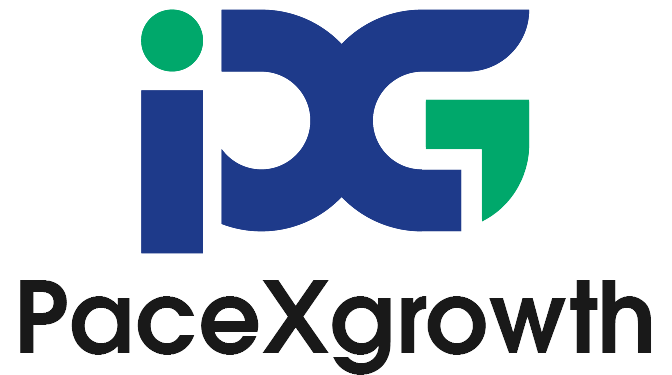The Ultimate Monthly Bookkeeping Checklist for Small Business Owners
Effective financial management is crucial for the success of any small business. Regular bookkeeping ensures that your financial records are accurate, up-to-date, and compliant with tax regulations. This monthly bookkeeping checklist is designed to help small business owners stay on top of their finances, streamline accounting processes, and make informed decisions. 1. Record and Categorize All Transactions Accurate transaction recording is the foundation of reliable financial statements. Utilize Professional Bookkeeping Services or accounting software to log all income and expenses promptly. Categorize transactions correctly to simplify tax preparation and financial analysis. Tips: Implement online bookkeeping services to automate transaction recording. Regularly review and update expense categories to reflect business changes. Maintain digital copies of receipts and invoices for easy access. 2. Reconcile Bank and Credit Card Accounts Monthly reconciliation of bank and credit card statements ensures that your recorded transactions match your financial institution’s records. This process helps identify discrepancies, unauthorized charges, or errors. Steps: Compare each transaction in your accounting records with your bank statements. Investigate and resolve any inconsistencies promptly. Utilize accounting and bookkeeping services for professional assistance. 3. Review Accounts Receivable Monitoring accounts receivable is essential for maintaining healthy cash flow. Regularly review outstanding invoices and follow up with clients to ensure timely payments. Strategies: Send reminders for overdue invoices. Offer multiple payment options to clients. Consider professional bookkeeping services for efficient receivables management. 4. Manage Accounts Payable Efficient management of accounts payable helps maintain good relationships with suppliers and avoids late payment penalties. Keep track of all bills and schedule payments accordingly. Best Practices: Set up automated payments for recurring bills. Review vendor terms and negotiate better payment conditions if possible. Use bookkeeping and accountancy services to streamline the payables process. 5. Process and Reconcile Payroll Accurate payroll processing is vital for employee satisfaction and legal compliance. Ensure that all employee compensations, deductions, and benefits are correctly calculated and recorded. Checklist: Verify employee hours and overtime. Calculate and withhold appropriate taxes. Distribute pay stubs and maintain payroll records. Consider accounting services for small businesses to manage payroll efficiently. 6. Update Inventory Records For businesses dealing with physical products, maintaining accurate inventory records is crucial. Regular updates help in tracking stock levels, identifying shrinkage, and planning purchases. Actions: Conduct monthly physical inventory counts. Reconcile physical counts with recorded inventory levels. Adjust records for any discrepancies. Leverage bookkeeping accounting services for inventory management. 7. Review Financial Statements For businesses dealing with physical products, maintaining accurate inventory records is crucial. Regular updates help in tracking stock levels, identifying shrinkage, and planning purchases. Key Statements: Conduct monthly physical inventory counts. Reconcile physical counts with recorded inventory levels. Adjust records for any discrepancies. Leverage bookkeeping accounting services for inventory management. Talk To a Bookkeeping Specialist Let’s Grow Together 8. Backup Financial Data Protecting your financial data from loss or corruption is essential. Regular backups ensure that you can recover information in case of system failures or cyber threats. Recommendations: Schedule automatic backups to secure cloud storage. Maintain physical copies of critical documents. Use online bookkeeping services that offer secure data storage solutions. 9. Prepare for Tax Obligations Staying ahead of tax obligations prevents last-minute stress and potential penalties. Regular preparation ensures that all necessary documents and funds are ready when tax season arrives. Preparation Steps: Calculate estimated tax payments. Organize deductible expenses and supporting documents. Consult with accounting services for small businesses for tax planning and filing. 10. Close the Books for the Month Closing the books finalizes all financial activities for the month, ensuring that records are accurate and ready for reporting. This process aids in maintaining organized and transparent financial records. Closing Activities: Ensure all transactions are recorded and reconciled. Review and adjust journal entries as necessary. Generate and file monthly financial reports. Seek assistance from bookkeeping services for small businesses to streamline the closing process. Also Read: Affordable Accounting Services Near Me-What to Look For Conclusion Implementing this monthly bookkeeping checklist will help small business owners maintain accurate financial records, ensure compliance, and make informed decisions. Regular bookkeeping practices are integral to the success and growth of your business. In combination with Business Incorporation Services, maintaining organized financial records establishes a strong foundation for your company’s legal and financial structure. Consider engaging professional bookkeeping services to handle complex tasks and provide expert insights, ensuring your business remains compliant and ready for future expansion. By staying consistent with your monthly accounting routines, you’ll reduce financial risks, maintain a healthy cash flow, and gain clarity into your business’s overall performance. Whether you choose bookkeeping services for small business or use online bookkeeping services, the key is to establish a reliable system that scales with your growth. Investing in dependable accounting and bookkeeping service not only saves you time but also gives you the confidence to focus on what truly matters—growing your business. Top 10 FAQs: Q 1: What is a monthly bookkeeping checklist, and why is it important for small businesses?Ans: A monthly bookkeeping checklist is a structured list of essential financial tasks that small businesses should complete each month. It ensures accuracy in financial records, supports compliance with tax laws, and provides business owners with a clear understanding of their financial position. Q 2: How can a monthly bookkeeping checklist improve my business’s financial management?Ans: It promotes consistency in managing finances, reduces the risk of errors, improves cash flow visibility, and helps in early detection of financial issues, all of which contribute to more informed decision-making. Q 3: What are the key components of an effective monthly bookkeeping checklist?Ans: Core components include recording all financial transactions, reconciling bank and credit card accounts, managing accounts receivable and payable, processing payroll, updating inventory records, backing up data, and reviewing financial statements. Q 4: How does reconciling bank and credit card accounts benefit my business? Ans: It ensures that your books match your actual bank and credit activity, helps detect errors or fraud, and contributes to more accurate financial reporting. Q 5: Why is it crucial to review accounts receivable and











